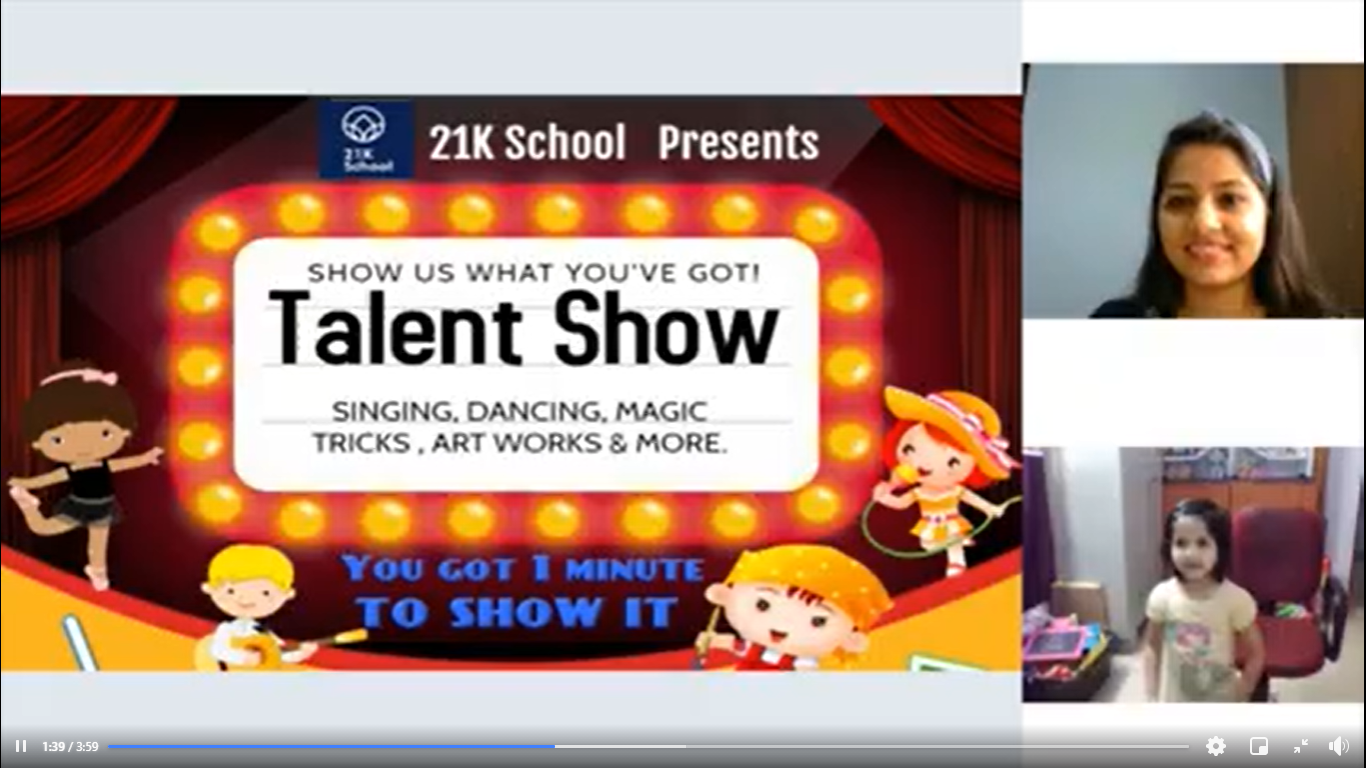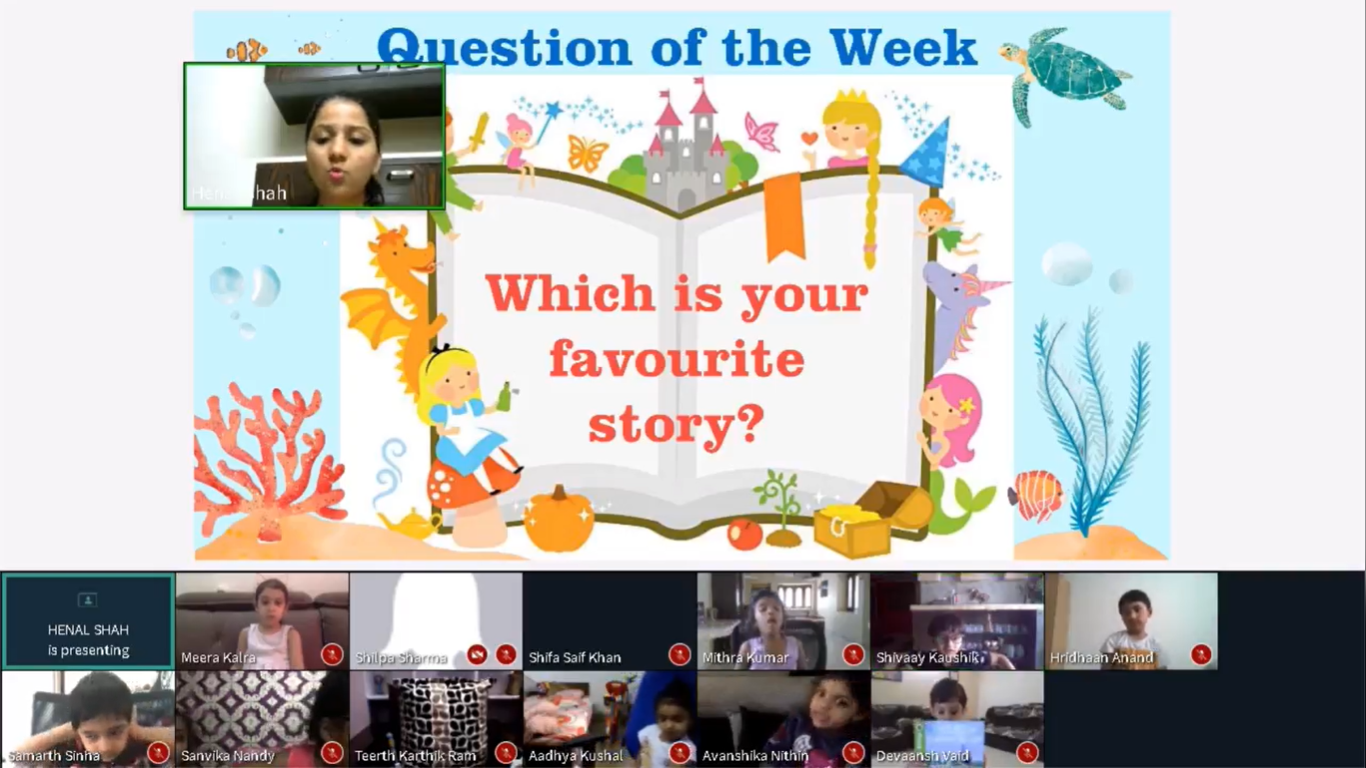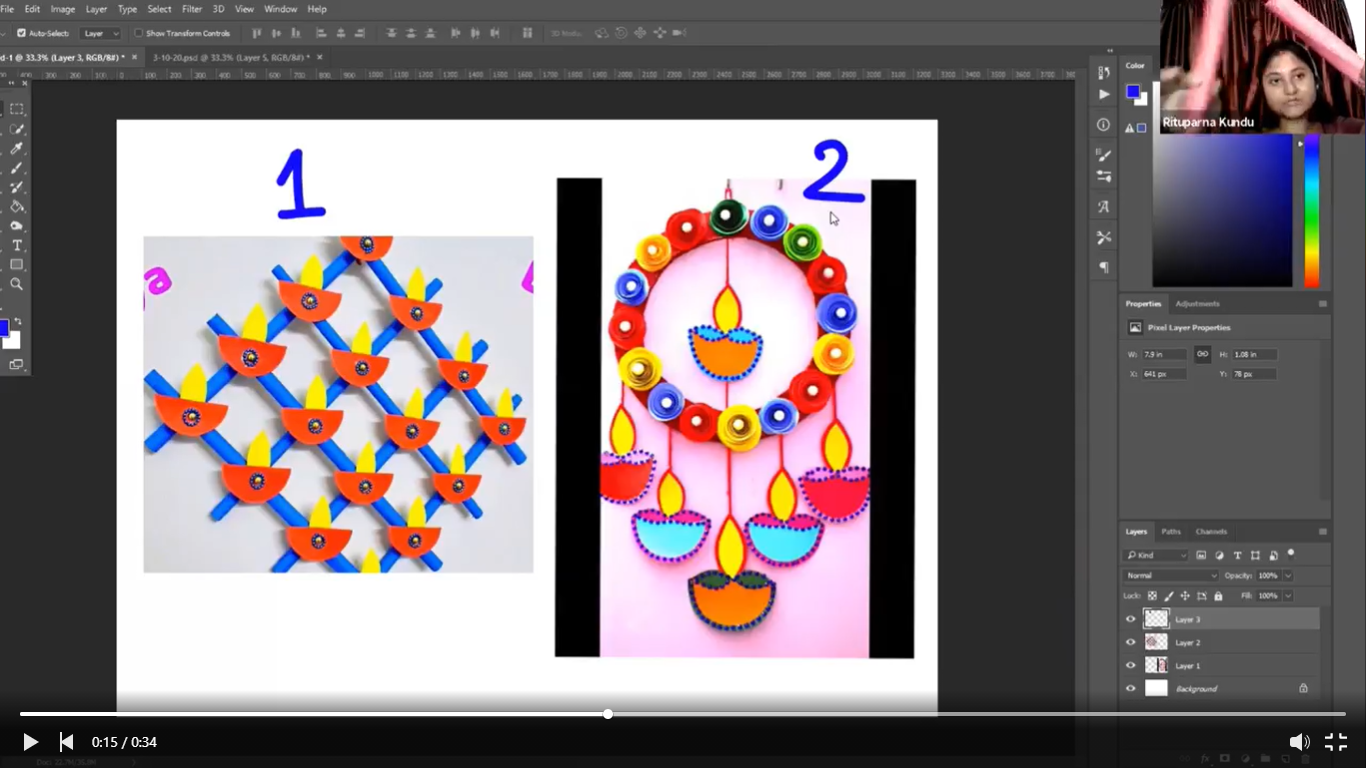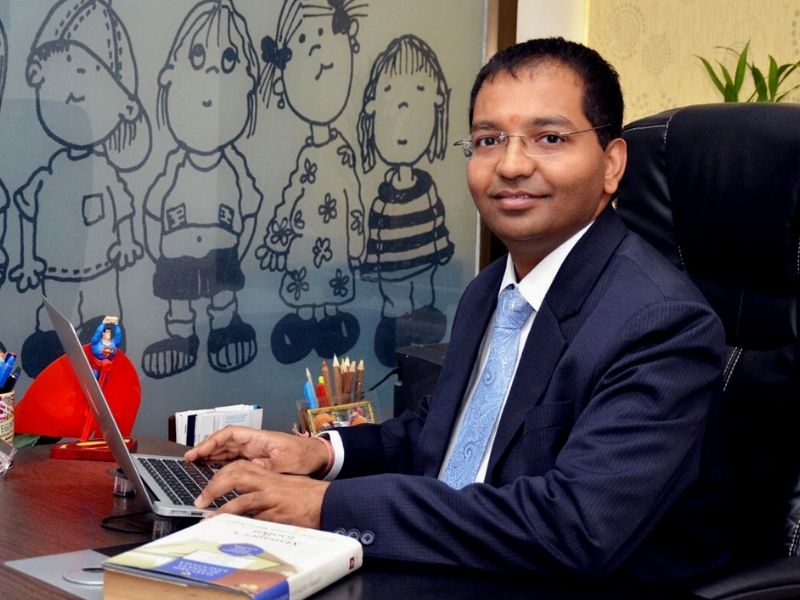– Sukanya Nandy
While the pandemic has forced schools to shift their teaching-learning processes online, an end-to-end online school is still a novel concept.
A first in India and the second in Asia, 21K School started in June 2020 and has no physical campus. The school initially started from grades Nursery to five following the National Curriculum Framework of India. Today, the school also offers a choice of American curriculum through its partner Stride, Inc., an NYSE listed company and one of the world’s largest online schools as well as the Cambridge (UK) curriculum, wherein classes are delivered through the school’s partner NISAI, UK.
In a conversation with EducationWorld, Yeshwanth Raj Parasmal, co-founder and principal-director of 21K School, talks about what inspired him and his team to come up with the idea of an online school in India and how it works.
Here’s an excerpt from the interview.
Tell us more about 21K School..
An online school teaches students entirely or primarily online or through the internet. According to the “Distance Education Enrollment Report 2017”, it is “education that uses one or more technologies to deliver instruction to students who are separated from the instructor and to support regular and substantive interaction between the students.”
21K School was not a response to the pandemic or lockdown of schools. We have been working on this for over a year. While the pandemic did accelerate the adoption of online education, we were well prepared to start the online school. Our vision is to make the 15 years of schooling meaningful and joyful for everyone involved. There are lakhs of students who chose not to go to a physical school – either by choice or otherwise. Some students have found their passion and career in sports, cultural and creative pursuits. Such students are unable to devote 6 to 8 hours for physical schooling. Some students are either physically challenged, mentally strained or undergoing medical treatment that makes it difficult to go to a physical school. Online school with 1 to 3 hours of classes per day, with the flexibility of any time, anywhere learning makes it possible for them to attend a school. We also saw a good response from Tier 2 and 3 cities. Such parents enrolled with us for better teachers’ quality and greater diversity in the classroom. Our classes have students from different geographic and cultural backgrounds. The energy in such classrooms is fantastic, something that we never anticipated. Attendance is mandatory for all subjects. We also conduct assessments, examinations, PTMs, regular activities, and issue report cards at the end of each term.

What inspired you to start an online schooling system in India?
We are well aware of the acute need for an alternative, technology-driven education system that overcomes a physical school’s limitations yet offers a similar experience. India needs more than 40,000 schools to put every out-of-the-school child back to school. Building infrastructure is easy, but getting quality teachers to work in remote areas is not. With the use of technology, it is possible to deliver affordable, high-quality schooling to students across the country. The high proliferation of 4G and Fiber Cable Internet and access to smartphones and computers has only made it easy for everyone.
We expect more online schools to start in India – both private and government. For example, there is a good case for The Rehabilitation Council of India to start an online school for persons with physical disabilities.
What does a regular class look like at 21k School? Apart from academic sessions, are co-curricular activities also conducted?
We have a maximum of 15 students at pre-primary and 30 students at primary level. This helps to maintain quality interaction and individual attention to each student. Students attend 3 hours of classes a day that includes English, Hindi / Regional Language, Social Studies / Environmental Studies, Mathematics, and Science (Grade 3 onwards). We also conduct Music & Rhythm, Digital Media & Arts, Computational Thinking classes for students. Yoga, Meditation and Mindfulness workshops are also regularly conducted. Students also attend several elective courses and a Summer School in April / May. Each of these electives and summer school program is skill-based and connected to real-world learning.

How many students are enrolled at present? What is the ratio of teachers to students?
Last year, we had 321 students from 25+ cities in India and abroad. The ratio of teachers to students is 1:8 in pre-primary and 1:15 in primary. This year, we expect over 2000 students to enrol with us from India and abroad.
Do the teachers undergo any special training before joining the school? If yes, how?
We have the advantage of recruiting skilled, qualified and experienced teachers from anywhere in the country. All our teachers are from metro cities and have excellent teaching and technology skills. More importantly, they are loving and caring persons with high empathy. We have developed our online learning protocol. All teachers are trained and mentored throughout the year in various teaching, value-based and technology skills. Thanks to technology, we observe every class conducted and feedback is given to teachers immediately to improvise the teaching, learning and engagement in the class.

Amid the Covid-19 pandemic, the education system has gone for a toss. With regard to this, how do you think 21K School can help navigate the challenges faced by parents and students?
I wouldn’t say that the education system has gone for a toss. Instead, I would say that the education system was liberalised last year. This liberalisation is more from a mindset perspective and opening new avenues and opportunities for every stakeholder, across the spectrum of the education system. The informal education system is growing much faster than the formal education system.
21K is an option for parents to pursue structured learning in a meaningful and engaging way with the flexibility of learning anytime and anywhere. Parents who are awakened to the needs of 21st century education and understand that the future belongs to those students who are skilled in creativity, communication, critical thinking and collaboration will adopt to online schooling. Student here saves on an average about 1050 hours a year. This time can be utilised for socialisation, development and pursuing your dreams – not dictated by a system but driven by passion.
A child born in Tier 2 and 3 cities can also access the same quality education that a child in Bangalore or Mumbai gets. It is possible, and we endeavour to make it happen.
Also read:
How technology will transform higher education in 2021
How online education is changing the way we learn
Posted in Campus, News























